Why a Better Employee Experience Tool Is More Important than Ever

COVID-19 has changed everything about today’s workforce, including where they work. Learn what an employee experience tool is, and why the right tool is your company’s best competitive advantage.
What is an employee experience tool, and why should you have one?
An employee experience tool is an interactive platform used to design, manage, and improve each stage of the employee experience. From time of hire, to onboarding, to development and engagement, every aspect of an employee's journey and interaction with their team is part of the employee experience.
As an HR professional, you know how important it is for employees to feel valued and appreciated for their work. They also want to be connected to the company, confident that they are an important part of the team, and contributing to common goals.
It’s all part of improving the employee experience. What’s changed over the last few months is the nature of most workplace teams. In 2018 as much as 63% of companies relied on some form of remote workforce, yet today the vast majority of employees are working from home.
Communication, culture, collaboration—what were once employee engagement challenges unique to remote employees are now challenges you must address across your entire workforce. You need new strategies to make sure every employee feels informed, valued, recognized, rewarded and connected from wherever they are.
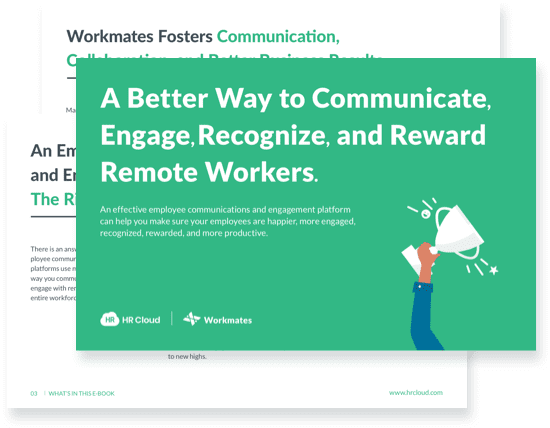
To learn even more about managing remote teams and keeping employees working at home highly engaged, download our ebook now.
Download nowA better employee experience starts now
Workmates, HR Cloud’s employee communications and engagement platform was built with this strategy in mind—ensuring that remote employees are just as connected to your company, its goals, and their teammates as any employee in the workplace. No one could have predicted the impact COVID-19 would have on today’s workforce. But as many clients have learned, Workmates is proven to be engineered for the new normal.
Chief Executive Officer of Medlinks Cost Containment, Inc. and Medlinks Staffing, LLC.
“Our staff has praised the increased communications level Workmates delivers. We use it to communicate important project matters and give staff specific ‘kudos’ or even recognize their birthdays. More importantly, we use Workmates to clarify important project details that needed rapid dissemination among the entire team.”
Let’s look at some of the challenges facing today’s remote workforce and how HR Cloud’s Workmates solution is helping companies overcome them by providing the best employee experience possible.
When company communications are critical
Even before the COVID-19 pandemic, it was difficult for remote employees to be in the know and up to date on company announcements and policies. Now the majority of employees are working remotely, which makes it even more important to communicate critical information. For example, companies need to inform all workers about policy updates or various safety updates to keep employees and customers safe.
To support company-wide communication, Workmates includes mobile access to real-time social feeds and company announcements ensuring every employee receives the information they need when they need it, quickly and consistently.
Collaboration and sharing between teammates
With employees forced to work virtually, collaboration can be a real challenge—meetings are more complicated (and somehow more frequent) and email volumes are overwhelming as the inbox replaces nearly all in-person conversations. Information is now at a premium.
Workmates provides employees with social channels and direct messaging that can get teams talking across projects and goals. Email cannot replace real-time collaboration, and Workmates ensures employees can trade information, ideas and opinions instantly. Plus as a manager you can deliver critical information to the right employee in the right moment as constructive feedback, not after the fact. Or worse, not at all. 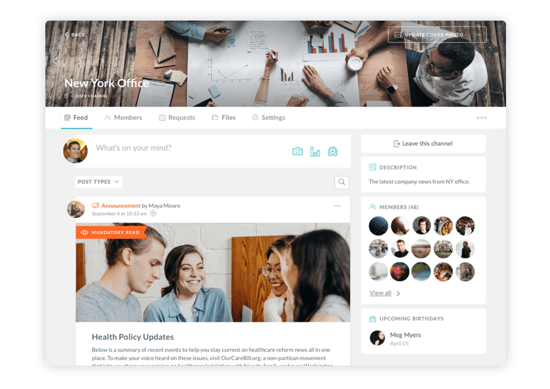
Rewarding employees with a virtual pat on the back
The stress of a virtual workplace is very real—work and personal lives are colliding in ways few employees, or employers, ever imagined. For that reason it is important for companies to enable managers and peers to recognize and reward employees for their contributions and achievements. A pat on the back can go a long way, but now it’s a long way to go to give one.
Not with Workmates. Employees can give a shout-out to a teammate and recognize a specific accomplishment. Managers can congratulate an employee for a job well done or a promotion, or congratulate the team for completing an important milestone.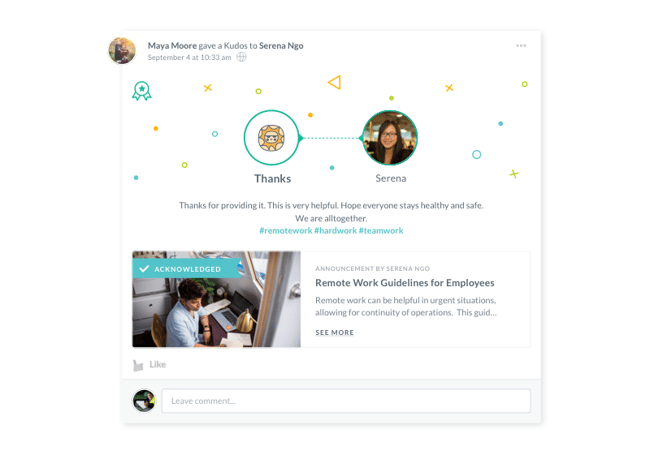
Help your company culture continue to thrive
Employees accept new jobs to grow their careers and pursue better compensation and benefits. But what often keeps them with the same employer for a long period of time is the feeling of belonging to a true team—a good manager and people they enjoy working with.
Without the right tools, the advantages of a strong employee culture can fade in a virtual setting. Workmates helps protect your culture. Real-time social engagement lets employees give each other the digital equivalent high fives, sharing fun GIFs and customizable badges to recognize and motivate each other in fun and engaging ways.
Engaged employees are happy employees as well as company advocates, willing and able to embody your company’s best interests, promote your products or services, and contribute to a stronger culture. 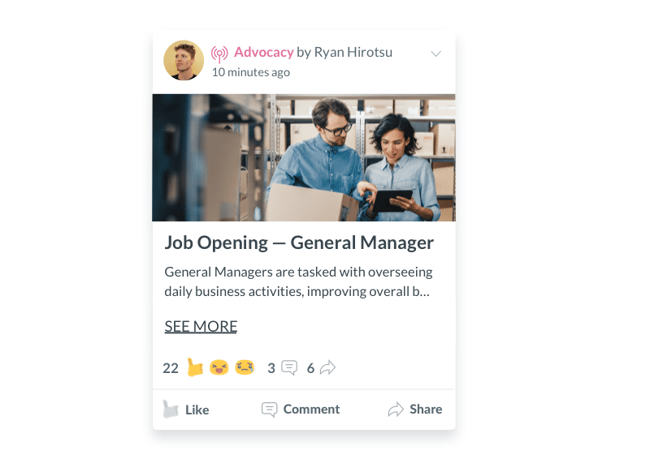
Transform your employee experience
Interested in learning more about HR Cloud’s Workmates, and how an employee experience tool can transform your remote workforce into a competitive advantage, even during the COVID-19 crisis? Contact us and let us show you what a “new normal” employee experience can be.
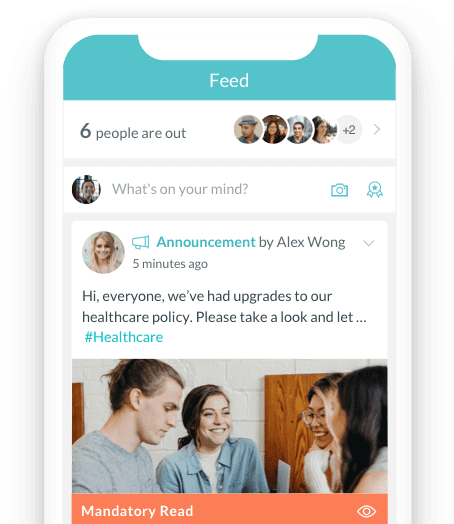
Keep Reading
Balancing Technology and the Human Touch in Employee Engagement
Companies are taking employee engagement very seriously because it is one of the ways of
Building Strong Teams: The Power of Team Bonding Exercises
Never overestimate the power of collaboration as a core element of effective team

